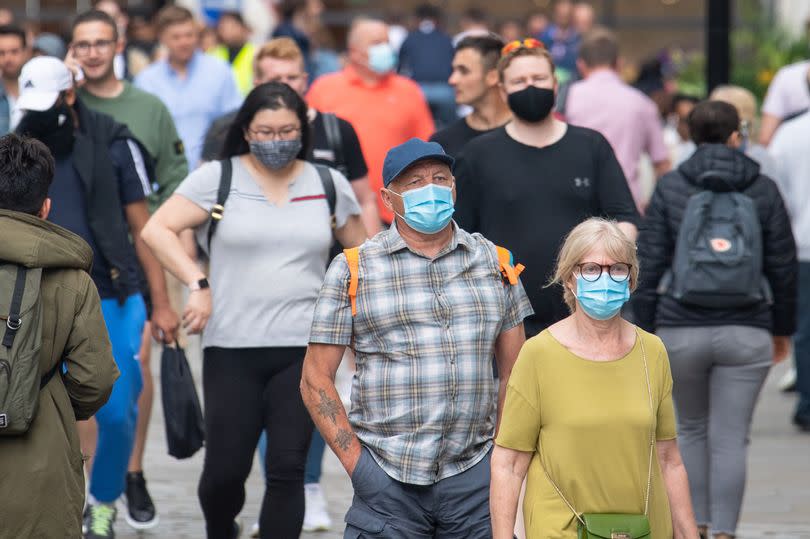UK health body issues update on new Covid FLiRT KP.3 variant in circulation

The UK Health Security Agency has issued an update on the new Covid variant that is currently in circulation. FLiRT represents a group of Covid variants that have developed over the last few months.
One of the variants, KP.3, has been identified in "small numbers in the UK this summer," according to UKHSA, however the data on this is limited. There is currently no evidence to suggest that it is more severe than other variants.
The update from the UKHSA said: "It’s normal for viruses to mutate and change, and more widely we’re still getting to grips with how the healthcare system responds to the ebb and flow of seasonal cases. As more data becomes available on this variant, we’ll have a better understanding of how it interacts with our immune systems and how to optimise our protection and as well as actions we can take to keep the most vulnerable safe and live our lives as normally as possible."
READ MORE: The number of people in hospital with Covid in Wales has almost tripled in a month
READ MORE: The full list of Covid symptoms in 2024 as hospital admissions increase
In Wales, the number of people suffering with Covid has tripled in the last month. There has been a huge increase in the number of people being admitted to hospital with coronavirus. In the seven days to June 1 there were 43 admissions, rising to 110 by June 30.
It is still too early for the UKHSA to tell if the increase in cases is a result of the new Covid variant. The UKHSA said: "When a new variant appears on our radar, at the initial stages it is often quite difficult to know whether the mutations provide any advantages to the virus. Genetic mutations happen all the time, and in some cases have been known to make a virus less transmissible or cause a milder reaction in people." For the latest health and Covid news, sign up to our newsletter here
In response to the variant JN.1, which is what KP.3 has descended from, scientists are busy growing a stock in high containment facilities to enable testing. At the same time, scientists working on vaccines are working with new and not yet licensed vaccines to determine whether they give better protection against the virus.

 Yahoo News
Yahoo News 
